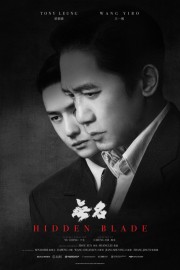Hidden Blade
Er Cheng’s “Hidden Blade” starts methodically, but gains steam as the complicated nature of war and doing what’s best for your home country plays out. As it went along, this film reminded me of Bryan Singer’s “Valkyrie,” of German officers who were more interested in saving their country from Hitler’s fascism than seeing it succumb to it. Here, the morality is not quite as clear for the characters, some of whom are attempting to resist the occupying Japanese forces in China from the shadows, and one who is seemingly betraying his homeland by working with the Japanese empire. That the film seems to gain energy as it goes along was a surprise; the film feels at first like “Tinker Tailor Soldier Spy” and wraps up feeling like “John Wick,” in a weird way. I liked the evolution.
The film begins in the 1930s, as the Empire of Japan is beginning to assert itself over mainland China; we’re still three years out from Pearl Harbor. We see the major players of this drama as they go about their lives, and some of their routines. A young man (Yibo Wang) is eating lunch with his friend in a cafe; they share a cab, as well as laughs. An older man (Tony Chiu-Wai Leung) interviews a man who seems to have something to do with a murder- we get the feeling both men know more than they are saying. And a woman gets messages in boxes of baked goods. All three are key players in a resistance group trying to position their country to survive the occupation they find themselves under during World War II. The young man seems to be a part of the cause, but in fact, he is someone working with the Japanese to snuff out any resistance.
A lot of what we see in the beginning of “Hidden Blade” will be seen later, sometimes in expanded fashion, but always with a purpose for seeing it again. When we see a bomber attack in these early moments, and a bombed-out city, our mind immediately thinks that these have to be in chronological order, but in fact, we’re seeing moments much later in time; in a way, the consequences of actions and characters we’ve been introduced to. While Cheng does offer titles explain where and when in time the film is currently set, it can still feel like a chore to sense out the narrative of the film in its early moments. There is a reason for Cheng’s structure, however, and it’s to show us the ways in which time can pass- or be transformed- by something as harrowing as war. War is something that is transformative, both for the countries involved, and the people, whom are trying to figure out a way of survival. That doesn’t mean their choices are not up for debate, however.
Cheng’s film is visually, and sonically, beautiful to experience, even if it is a narratively dense film. As dense and complex as the film feels at the start, it begins to clear up into something more straightforward as time passes, and that is where “Hidden Blade” crushed it for me. The performances are all strong, but its Cheng’s vision that makes this film a success.










